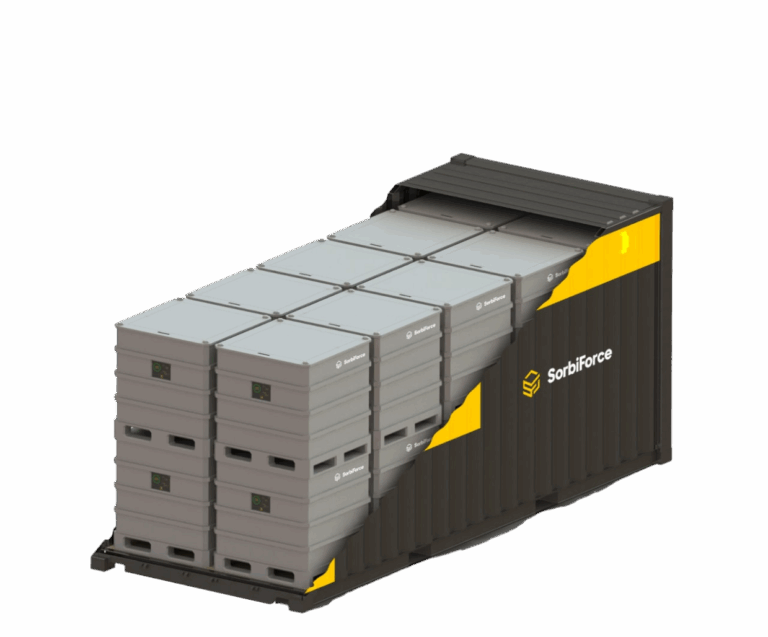ImageSource: https://www.SorbiForce.com
Ukrainian startup SorbiForce has announced a groundbreaking innovation: the world’s first truly sustainable battery, crafted using only carbon, water, salt, and agricultural waste. This pioneering solution aims to tackle the growing environmental challenges posed by conventional energy storage systems.
The vision behind SorbiForce’s innovation originated with material scientist Serhii Kaminskyi, the company’s CEO and co-founder. Troubled by the substantial sustainability issues associated with current battery technologies, Kaminskyi assembled a team of experts in the late 2010s. Their work ultimately earned SorbiForce a spot at the University of Arizona’s Center for Innovation, supported by the U.S. Department of State’s Global Innovation through Science and Technology initiative, particularly following the onset of the Russia-Ukraine war.
At the core of SorbiForce’s technology is the principle that “waste is value.” With agriculture producing up to 2.1 billion tons of waste annually, the team saw an opportunity to transform this abundant resource into something valuable and sustainable. The result is a sorption battery that forgoes traditional chemical reactions in favor of three physical processes to move electrons through an ultraporous carbon layer. Both the cathode and the anode are made entirely of carbon, rendering the battery completely nonflammable — a significant safety advantage over lithium-ion batteries.
“What’s really interesting about our technology is that the ultraporous carbon materials actually get better as they age,”
explains Kevin Drolet, SorbiForce’s Chief Marketing Officer.
This unique characteristic could extend the battery’s lifespan to up to 30 years, provided that water is replenished as needed.
Another impressive feature is the battery’s end-of-life sustainability. Approximately 95% of the battery can be broken down into organic materials, while the remaining 5% consists of components that can be reused. In contrast to conventional lithium-ion batteries — which often end up as toxic waste and can pose serious hazards during recycling — SorbiForce’s metal-free, closed-loop design eliminates risks like explosions, thermal runaway, or toxic leaks. Remarkably, even if a SorbiForce battery cell were physically cut in half, it would continue operating safely.
The company is now preparing to move from concept to real-world deployment. Pilot projects, with capacities ranging from 60 kWh to 150 kWh, are scheduled for the second half of 2025. To support this next stage, SorbiForce is currently raising 5.000.000 US-Dollar in seed funding.
Drolet is optimistic about scaling up operations, citing significantly lower capital expenditure (capex) compared to lithium-ion technologies. “The salt and materials needed for our batteries are abundantly available in the United States, which dramatically reduces production costs,” he notes. Thanks to these cost advantages and the pressing market demand for safer, more sustainable energy storage solutions, SorbiForce anticipates a smooth transition from pilot projects to full-scale manufacturing.
The batteries are designed to exceed 6,000 charge-discharge cycles and can be modularly stacked to fit various storage needs, offering flexibility and scalability for future energy projects. Drolet emphasizes the growing need for technologies that are non-flammable, non-explosive, and domestically produced in the U.S. “If you can build something that doesn’t catch on fire, that’s really valuable; we can do that while building a circular economy for energy storage,” he adds.
With initial battery sales expected to roll out later this year, SorbiForce’s innovation could mark a pivotal shift towards greener, safer, and more circular energy storage systems. As the world continues to search for alternatives to environmentally damaging lithium-ion batteries, SorbiForce’s organic battery technology stands out as a promising and timely advancement.

